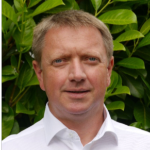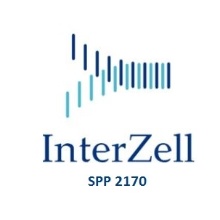SPP2170 is driven by the mindset of modern biochemical engineering linking questions of biological research (microbiology, molecular biology, cell culturing and cell biology) with engineering principles (system modeling, process development, simulation). The "InterZell" program, funded by the DFG as a priority program (SPP 2170) addresses 10 different research goals in cell-cell or cell-bioreactor interactions. The ten research projects collaborate in tandem teams. Coordinator and speaker of the "InterZell" project is Prof. Dr.-Ing. Ralf Takors.
More about "InterZell".
We also invite you to stay in contact with us via LinkedIn and Instagram
InterZell Project
InterZell focuses on the cell-cell and the cell-bioreactor interaction – both targeting on the production of commodities, fine chemicals, aroma compounds, technical or therapeutic proteins, and pharmaceutically active compounds such as antibiotics or APIs. The SPP 2170 program is a 3-years lasting DFG priority program from 2019-2022 in the first period and an extension for another 3 years. The evaluation of projects for the secund funding period by the DFG is in progress.
Cell-Cell Interactions
Research in this field will concentrate on the application of so-called synthetic co-cultures, i.e. mixed cultures consisting of synthetically engineered strains taking distributed loads of production. Alternatively, synthetic cultures may comprise artificially composed co-cultures that do not co-exist in nature.
Cell-Bioreactor Interactions
Related research clearly focus on quantitative scale-up approaches finally to understand and predict large-scale performance a priori via lab-scale tests. Mono cultures can be investigated and applied for this topic.
DFG Priority Program 'InterZell'

Ralf Takors
Prof. Dr.-Ing.Professor
Martina Rehnert
Dr.Post-Doc, Project Manager DFG SPP 2170 „InterZell“




